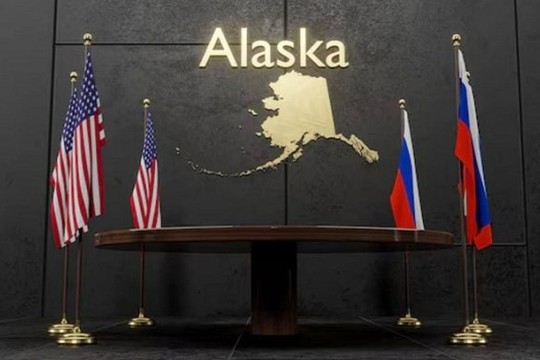Photo: publics
The world will be watching with great interest the outcome of the Trump-Putin meeting in Alaska. Normally, such meetings at the summit level are carefully prepared to ensure positive outcomes. Trump’s envoy Steve Witkoff has had more than one meeting in Moscow with Putin, with the most recent one achieving some breakthrough. The Russian side made it known that the latest US proposal was acceptable. This has paved the way for the Alaska summit, writes Kanwal Sibal, a distinguished Indian diplomat and former Foreign Secretary of India, who served as Ambassador to Turkey, Egypt, France, and Russia.
While the Russian side has refrained from publicly talking about the US proposals, Trump himself, as is his wont, has been talkative about aspects of what to expect at Alaska. He has mentioned some exchange of territories between Russia and Ukraine as part of an eventual solution. Whether this is kite-flying or deliberate leaks to prepare public opinion is unclear.
For Zelensky, security guarantees are a code word for NATO membership or some form of guarantee by NATO countries. Already, individual European countries such as France, Germany, Italy, the UK, Denmark, Poland, and others have signed security agreements with Ukraine. These agreements, some lasting 10 years, outline commitments to provide security and military assistance to Ukraine. However, without the US backing them, these guarantees are not really meaningful, as these countries are in no position to enter into a direct conflict with Russia on their own.
Zelensky continues to try his best to prevent a US-Russian agreement over Ukraine’s head. He has already stated repeatedly that Ukraine will not agree to any cession of its territory to Russia. He wants to be a party to the talks at Alaska. He is demanding that Russia agree to a ceasefire before the territorial issues are discussed. Trump has promised that he would be the first to be briefed after the summit. Europe is livid at being excluded from the US-Russian peace negotiations on Ukraine. For it, the issue is one of European security and, therefore, Europe must be consulted.
It would seem that the Trump administration is tempering expectations that major progress towards a ceasefire could be made at Alaska. It is calling the summit a “listening exercise”. Secretary of State Rubio has given a similar spin by saying that Trump wants to size up Putin face-to-face.
The anti-Trump Western politicians and foreign relations experts are calling the meeting in Alaska, on US soil, a diplomatic success for Putin. He has, in their view, obtained acceptability and, indeed, an equality of status with the US president.
For both sides, the issues to be discussed go beyond Ukraine. Witkoff has been discussing broader issues of an economic nature. Nuclear disarmament issues are important because of the New Start Treaty expires in February 2026 and both sides would prefer to renew it to avoid a new arms race. US commentators believe Trump wants to wean Russia away from China so that America can focus primarily on the threat from China. These are issues that go beyond US-Europe ties.
India has welcomed the projected Trump-Putin dialogue at Alaska, which it believes holds the promise of bringing to an end the ongoing conflict in Ukraine and opening up the prospects for peace. India is ready to support these efforts. We have reiterated Prime Minister Modi’s dictum that this is not an era of war.
Trump’s egoism and erratic nature, his lack of attention to detail, his impatience, his view of diplomacy as mere deal making, his blowing hot and cold on talks with Russia, optimistic and pessimistic at different moments, recognising that Russia cannot be defeated and yet threatening even to bomb Moscow, raises the question why Russia thinks he can be taken at his word and whether any understanding with him can be durable, especially as anti-Russian sentiment in the US is very deep. But maybe Putin judges that keeping Trump engaged is helpful in many ways.
At least the two leaders are talking, some diplomatic dialogue has been restored, these direct Russia-US contacts are causing cracks in transatlantic unity, Europe is being put in its place and is being burden with costs, and so on.
read more in our Telegram-channel https://t.me/The_International_Affairs

 11:42 15.08.2025 •
11:42 15.08.2025 •























